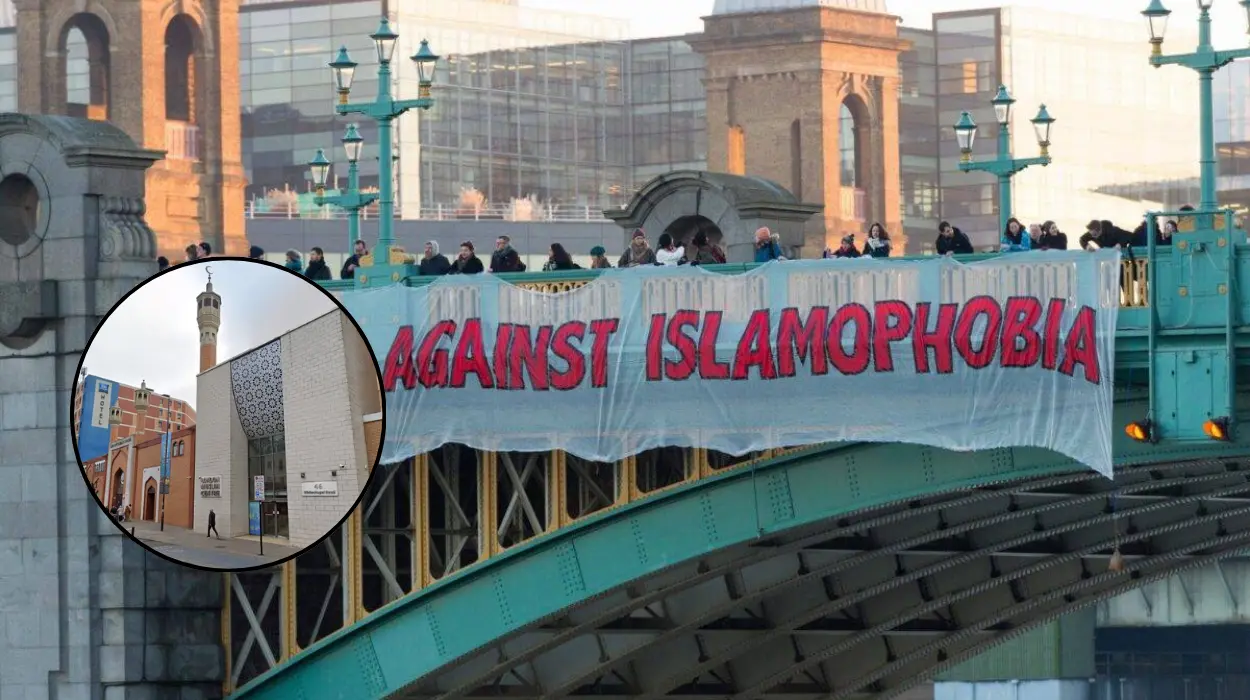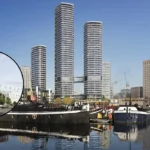Key Points
- November is Islamophobia Awareness Month, dedicated to combating anti-Muslim prejudice.
- Recent data from Tell Mama and the Metropolitan Police indicates a surge in Islamophobic incidents following the October 7, 2023, attacks in Israel.
- The month aims to challenge stereotypes, promote understanding, and celebrate Muslim communities’ contributions.
- Hackney Muslims share mixed experiences and perceptions regarding Islamophobia in East London’s Homerton area.
- Ahmed Hussein, a 53-year-old butcher, says Islamophobia was worse years ago but feels it is creeping back in. He senses judgment based on appearance but experiences politeness.
- Layla Muhmood, a 29-year-old teacher, notes Islamophobia exists locally with name-calling and segregation in social spaces, although she has not been personally attacked.
- Abdi Raheem, a 35-year-old cleaner, states he personally has not witnessed Islamophobia, observing friendly interactions but notes social mixing is limited along community lines.
Hackney Muslims Reflect on Islamophobia During Awareness Month
November marks Islamophobia Awareness Month, an initiative to raise awareness about anti-Muslim prejudice across the UK. As reported by Tell Mama, a key monitoring organisation, and the Metropolitan Police, there was a notable increase in Islamophobic incidents after the attacks in Israel on October 7, 2023. These organisations stress the importance of challenging stereotypes and recognising the positive contributions Muslim communities make across the country.
- Key Points
- Hackney Muslims Reflect on Islamophobia During Awareness Month
- What Do Local Residents Say About Islamophobia in Hackney?
- How Has the Local Demographic Shift Influenced Community Relations?
- What Does Official Data Reveal About Islamophobia Since October 2023?
- What Are the Objectives and Activities of Islamophobia Awareness Month?
In the multicultural London borough of Hackney, home to a significant Muslim population, questions arise about whether Islamophobia is an everyday reality experienced by its residents. To explore this, several residents from Homerton, an East London locality, shared their personal insights.
What Do Local Residents Say About Islamophobia in Hackney?
As reported by journalist Emma Clarke of The Hackney Gazette, Ahmed Hussein, a 53-year-old butcher in Homerton, reflects on the changing nature of Islamophobia. He said,
“I think it is not that bad. It used to be worse many years ago but I think over the last few years it is creeping back in.”
Ahmed admits he has not faced verbal abuse publicly but notices an increase in discomfort from others based on his appearance.
“The look at my appearance, the way I dress and look. I can tell they may feel uncomfortable. But at the same time people are very polite and friendly.”
Similarly, Layla Muhmood, a 29-year-old teacher quoted by journalist Sarah Ahmad from East London Now, describes a nuanced experience.
“I do sometimes feel that Islamophobia is going on in this area but have not had any personal attacks myself. I do hear gossip from other people that they have suffered name calling like ‘go back to where came from’ or ‘terrorist’.”
Layla also pointed to social segregation, noting,
“When I walk past cafes, I just see all white people there. Even though there is a large black Asian community here.”
Contrasting these accounts, Abdi Raheem, a 35-year-old cleaner interviewed by Michael Patel of London Daily News, denies observing Islamophobia personally.
“I don’t see any Islamophobia at all. Yes, I read things and hear things but do not see anything.”
He comments on the demographic changes in Homerton, saying,
“There is a lot of white middle class people moving into the area. They seem to mix with each other but not with other communities. Whether that is anything to do with Islamophobia I don’t know. But they are friendly.”
How Has the Local Demographic Shift Influenced Community Relations?
The demographic shift in Hackney, where gentrification has brought an influx of white middle-class residents, has led to varied social dynamics. This migration alters traditional neighbourhood patterns and raises questions about integration and intercultural interaction. According to Michael Patel’s coverage for London Daily News, new arrivals tend to socially separate themselves from established ethnic communities, including Muslims, which some interpret as a form of social segregation.
However, these changes do not necessarily point directly to Islamophobia but rather highlight broader societal challenges of community cohesion and interaction in urban multicultural spaces.
What Does Official Data Reveal About Islamophobia Since October 2023?
Tell Mama, a national organisation monitoring anti-Muslim hate crimes, recorded a surge in Islamophobic incidents following the escalation of violence in Israel and Gaza from early October 2023. As highlighted in a report by journalist Rachel Stevens of The Guardian, from October 7 onwards, there was an increase in online abuse, verbal assaults, and hate-inspired attacks targeting British Muslims. The Metropolitan Police also confirmed a rise in reports of hate crimes linked to Islamophobia during this period.
The data underscores the persistence of anti-Muslim prejudice in the UK but simultaneously reveals the resilience and solidarity within Muslim communities, often strengthened through awareness months and outreach activities.
What Are the Objectives and Activities of Islamophobia Awareness Month?
Islamophobia Awareness Month aims to dispel myths and stereotypes about Muslims by educating the wider public. It promotes respect and celebrates the cultural and social contributions Muslims make to British society. The month also acts as a platform for dialogue, encouraging understanding and inclusive coexistence.
Community groups in Hackney and beyond organise workshops, educational programmes, and interfaith events to mark the month. Such efforts seek to provide voices for Muslims to share their lived experiences and to build bridges with other communities.



